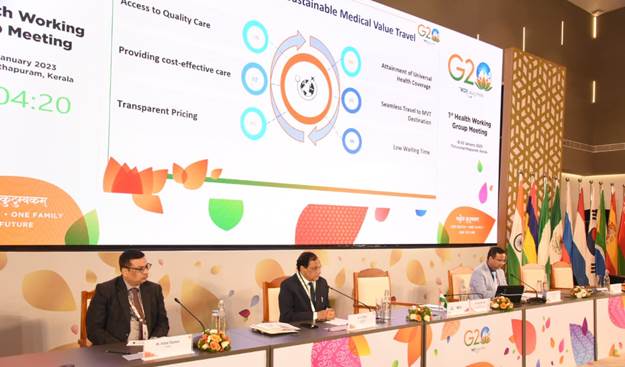In today's interconnected world, the convergence of technology and healthcare has led to transformative changes in the way medical services are accessed and delivered. As we stand on the cusp of the digital age, one area that has witnessed a paradigm shift is medical value travel. Advancements in technology are breaking down barriers, making medical value travel more accessible than ever before. From virtual consultations with renowned specialists to seamless travel arrangements, digital platforms are redefining the landscape of medical value travel, making it a smoother, more informed, and patient-centric experience.
Virtual Consultations: The Gateway to Global Expertise
The advent of telemedicine and virtual consultations has revolutionized the way patients seek medical advice. In the realm of medical value travel, this technological innovation has opened doors to global expertise like never before. Patients can now connect with renowned specialists from around the world, irrespective of geographical boundaries. This is particularly beneficial for patients seeking second opinions, exploring treatment options, or preparing for medical journeys. These virtual interactions provide valuable insights, allowing patients to make informed decisions and plan their medical travels with greater confidence.
Personalized Care Through Digital Medical Records
Digitalization has also paved the way for seamless access to medical records. By securely storing patient information in digital formats, medical value travel platforms ensure that healthcare providers in different locations can access relevant medical history, diagnoses, and treatment plans. This facilitates continuity of care and enables specialists to tailor treatment options to the individual patient's needs. The ability to share comprehensive medical data with multiple specialists ensures a comprehensive approach to care, even when those specialists are located in different parts of the world.
Streamlining Travel Logistics
The logistical complexities of medical travel can often be daunting. However, technology is transforming the process into a more streamlined and efficient experience. From booking flights and accommodations to arranging airport transfers and post-operative care, digital platforms offer end-to-end solutions. Patients can access detailed itineraries, track their travel arrangements, and receive real-time updates, ensuring a stress-free journey.
Global Networking and Collaborations
Digital platforms are fostering collaborations among medical professionals across the globe. This interconnectedness enables physicians to share insights, best practices, and innovative treatment approaches. These collaborations have a direct impact on patient outcomes, as multidisciplinary teams work together to devise comprehensive treatment plans. Patients benefit from a collective pool of expertise, ensuring that the best minds in various medical fields contribute to their care.
Enhancing Accessibility for Diverse Populations
Digital accessibility is democratizing medical value travel, making it more inclusive for diverse populations. Patients who may have mobility challenges, language barriers, or limited access to healthcare resources are finding avenues for high-quality medical care through digital platforms. Language translation tools, virtual assistants, and user-friendly interfaces ensure that medical value travel is accessible to a wide range of individuals, irrespective of their background or circumstances.
In conclusion, the digital age has ushered in a new era of accessibility in medical value travel. Technology is bridging gaps, enabling patients to tap into global expertise, facilitating seamless travel arrangements, and enhancing overall patient experiences. As the healthcare landscape continues to evolve, the integration of technology will remain a driving force, transforming medical value travel into a patient-centric journey that empowers individuals to seek the best medical care available, regardless of borders.

Comments
Post a Comment